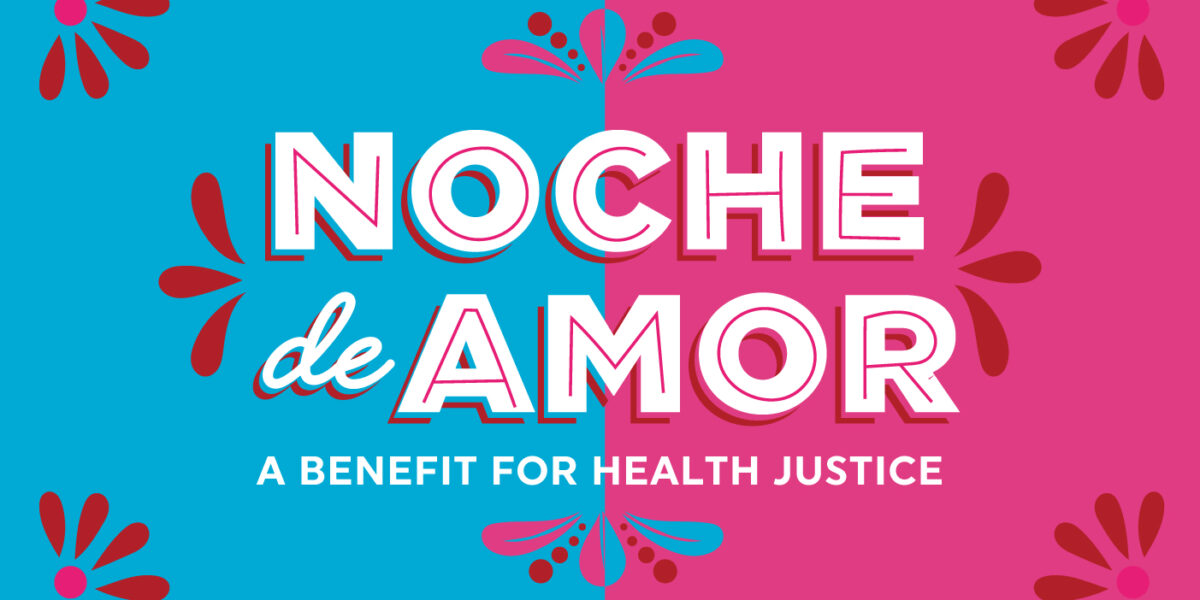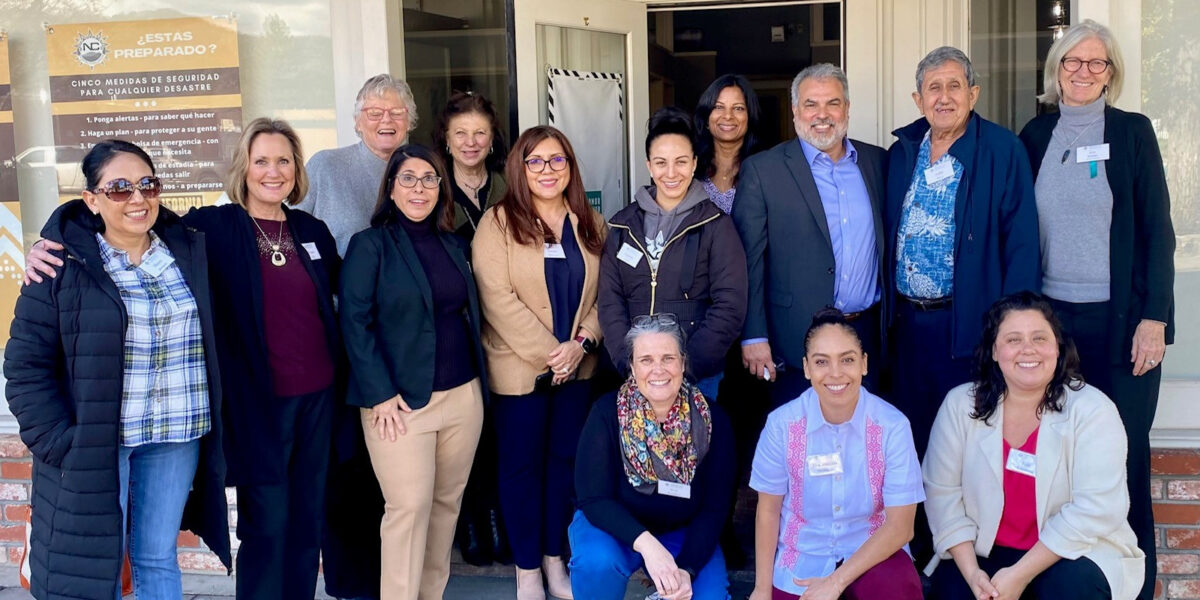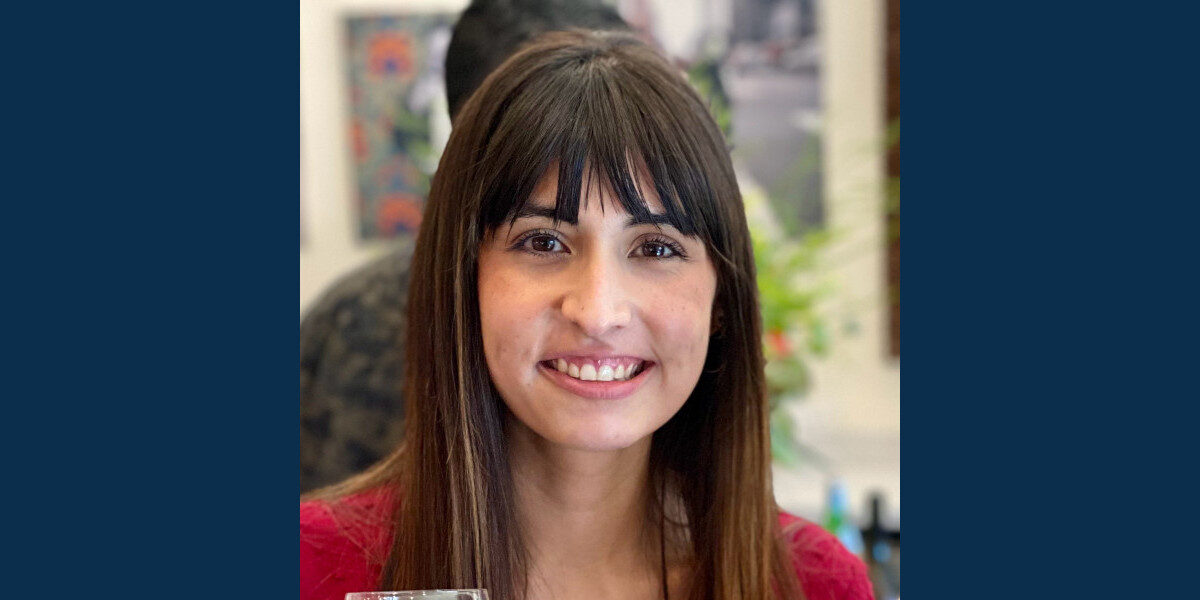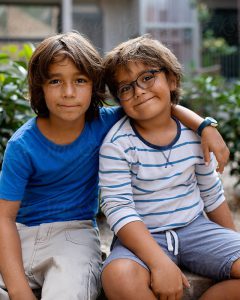
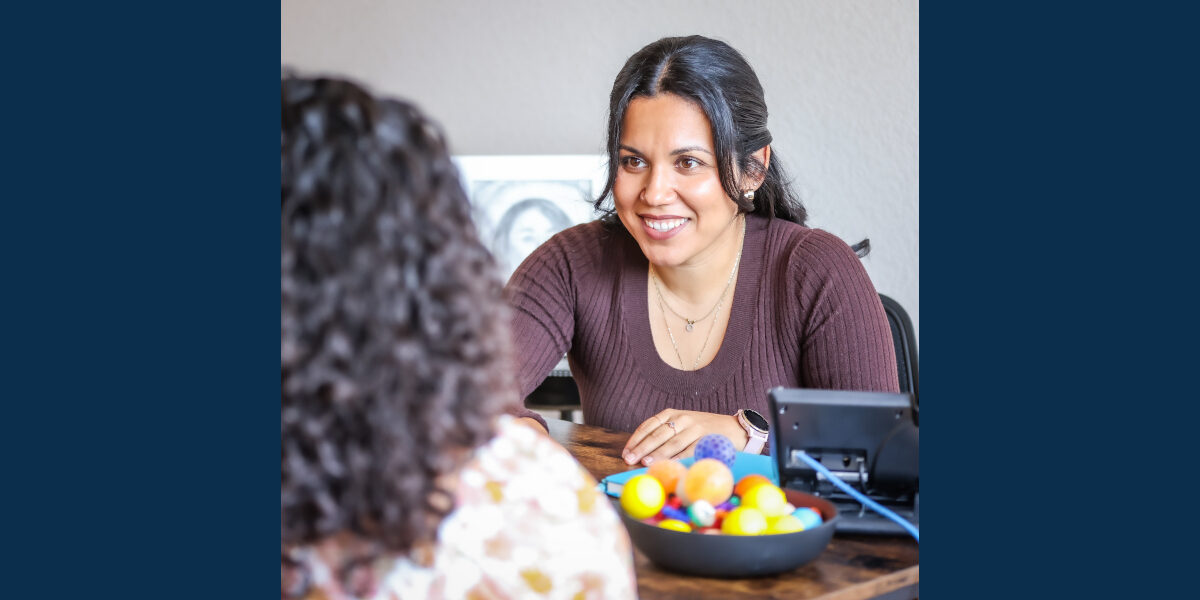
Mental Health Talent Pipeline Spotlight: Yadira Esparza
1.5 min read. Photo: Yadira Esparza working with a client at Roseland Collegiate Prep.
Yadira Esparza was an early participant in Healthcare Foundation’s Mental Health Talent Pipeline scholarship program, launched in 2018 to support aspiring bilingual, bicultural mental health professionals and address the critical shortage of therapists serving our region’s Spanish-speaking residents. Yadira earned her master’s in counseling psychology from University of San Francisco in 2021, becoming the first in her family to gain a graduate degree.
Born and raised in the majority-Latino Roseland neighborhood of Santa Rosa, Yadira is today a school-based bilingual, bicultural therapist for Roseland School District. She is also a therapist and counselor at Santa Rosa’s Keystone Therapy and Training Services.
“What I love most about my work is returning to the community I grew up in,” she told us when we caught up with her recently, “and giving back to my people.”
As Roseland School District’s only school-based therapist, Yadira works with middle school and high school students with “higher needs,” those who have experienced extensive trauma, are currently in crisis, or have recently undergone a suicide assessment and require mental health support.
“The goal is to find them ongoing therapy outside of school that is year-long,” she says. “However, due to long wait lists, high fees for therapy, and sometimes unstable home environments, some students remain with me longer.”
Asked about the most pressing needs she encounters, Yadira lists suicide ideation and self-harm before detailing other alarming trends.
“I have also seen an increase in teens self-diagnosing. Teens are seeing on social media, or through their peers, conversations about mental health,” she explains. “They identify with a diagnosis and self-treat, sometimes even taking medication not prescribed to them. I am also seeing an increase in depression, anxiety, social anxiety, and behavioral issues. I am finding that people are having a hard time coping with trauma from the fires, pandemic, or lived experiences such as domestic violence, sexual assault, or child abuse.”
Yadira says the greatest challenge for the population she serves remains “finding enough providers offering mental health support.” Nevertheless she is optimistic that things will further improve if other aspiring clinicians join the pipeline.
“My hope is that there is an increase in enrollment in graduate programs that will train mental health practitioners,” she says, “and that there is an increase in financial support for these individuals.”
While the Healthcare Foundation, its donors and community partners recognize that such financial support plays a crucial role in advancing health equity, we appreciate that none of it would be possible without young professionals like Yadira who strive to give back to their communities.
“Roseland is my home,” she says, “and my hope is that we continue to heal, grow, and learn together.”

Related News + Stories
Invest in Our Community
Your support is vital to our collective vision of eliminating health inequities in northern Sonoma County.
Donate
